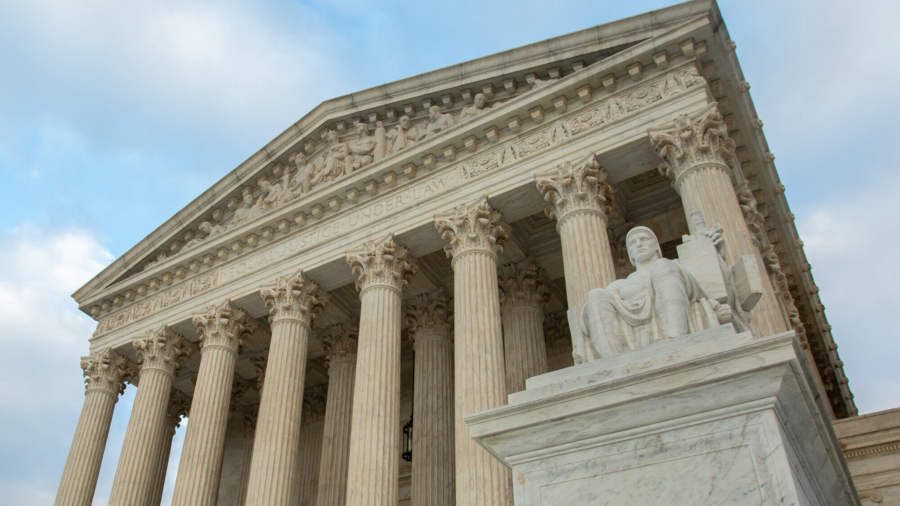A group of House Democrats is expected to announce a bill on Thursday that seeks to add four more seats to the U.S. Supreme Court, expanding it from nine to 13 justices.
The bill, which is slated to be dubbed the Judiciary Act of 2021, will be introduced by Sen. Ed Markey (D-Mass.) and Reps. Jerry Nadler (D-N.Y.), Hank Johnson (D-Ga.), and Mondaire Jones (D-N.Y.). Jones confirmed in a statement following a report about the planned move.
“Our democracy is under assault, and the Supreme Court has dealt the sharpest blows. To restore power to the people, we must #ExpandTheCourt. That’s why I’m introducing the Judiciary Act of 2021 with @RepJerryNadler, @RepHankJohnson, and @SenMarkey to add four seats to SCOTUS,” Jones wrote on Twitter.
The planned move comes as public debate on whether there is need to reform the court reached a crescendo after former President Donald Trump nominated then-Judge Amy Coney Barrett to the bench. Barrett was nominated to succeed Justice Ruth Bader Ginsburg following Ginsburg’s death and was eventually confirmed by the GOP-led Senate last year.
Liberal activists were worried that Barrett’s addition to the top court could tilt it towards more conservative outcomes and began lobbying efforts to expand the court. Barrett is described as an originalist and textualist, a judge who bases their interpretation of the U.S. Constitution or statutes on what the original authors intended at the time of ratification by assigning weight on the actual text of the law.
Earlier this month, President Joe Biden signed an executive order forming a commission to study possible reforms to the nation’s top court, including proposals to expand the court.
The panel will consist of former federal judges and lawyers who have argued in front of the Supreme Court, as well as “advocates for the reform of democratic institutions and of the administration of justice,” the White House stated. “The expertise represented on the commission includes constitutional law, history, and political science.”
The panel created by Biden will be led by Bob Bauer, who served as White House counsel for former President Barack Obama, and Yale Law School professor Cristina Rodriguez, who served as deputy assistant attorney general in the Office of Legal Counsel in the Obama administration.
Biden presented the idea of the commission as an alternative to “court-packing” efforts.
Court-packing has been attempted many times since 1937, when Democrat President Franklin D. Roosevelt proposed legislation to expand the size of the Supreme Court to a maximum of 15 justices. But has yet to succeed. Roosevelt’s motive at the time was to shift the ideological balance of the court so that it would stop striking down his “New Deal” programs.
While the Supreme Court and federal judiciary are set up according to the Constitution, it also gives Congress the authority to pass laws to set up the judicial branch, including how many justices sit in the top court.
Republican lawmakers have opposed efforts to expand the Supreme Court and introduced their own legislature measures to prevent Democrats from changing the number of seats on the bench. The most recent proposal was announced on April 13 by Rep. Mike Gallagher (R-Wis.), who introduced a constitutional amendment to limit the number of Supreme Court justices to nine.
“We don’t need a commission to know court-packing is a radical idea that would undermine confidence in one of our country’s most important—and trusted—institutions,” Gallagher said in a statement.
“The Supreme Court has been comprised of nine justices for more than 150 years, and it’s time we amend the Constitution to make this longstanding precedent permanent before it’s too late.”
The bar to amend the Constitution is very high as it requires two-thirds of the House and Senate to approve the text of the amendment and then three-quarters of the states to ratify the amendment.
Supreme Court Justice Stephen Breyer, who is described as a liberal-leaning member of the bench, has warned against expanding the number of seats on the court.
“To make those whose initial instincts may favor important structural change, or other similar institutional changes, such as forms of court-packing, think long and hard before they embody those changes in law,” Breyer said in a speech to Harvard University students and alumni last week.
“If the public sees judges as politicians in robes, its confidence in the courts and in the rule of law can only diminish, diminishing the court’s power, including its power to act as a check on other branches.”
The White House did not immediately respond to a request for comment from The Epoch Times.
Jack Phillips contributed to this report.
From The Epoch Times


